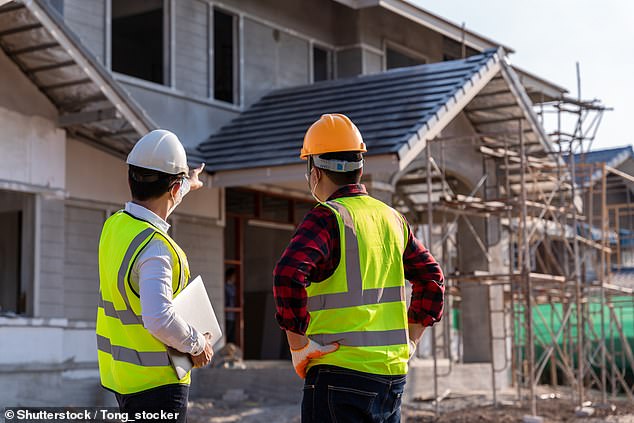Ever wondered why construction work in the UK typically starts at 8 AM? The answer reveals a fascinating balance between productivity, regulations, and neighbourhood harmony.
The Historical Evolution of Construction Hours
The standardisation of construction working hours in the UK has a rich history dating back to the Control of Pollution Act 1974. This landmark legislation marked the first comprehensive attempt to regulate construction noise and working hours nationwide. Before this act, construction could theoretically commence at any hour, leading to significant disruption in residential areas. The Act empowered local authorities to set and enforce specific working hours, gradually leading to the establishment of the 8 AM start time as the industry standard. This timing was carefully chosen to balance the needs of construction companies with those of local residents, considering factors such as rush hour traffic, ambient noise levels, and natural daylight patterns in the UK.
Legal Framework and Local Authority Control
- Standard permitted construction hours: Monday to Friday, 8 AM to 6 PM
- Saturday operations: 8 AM to 1 PM
- Sundays and Bank Holidays: Generally no construction work permitted
- Local councils maintain authority to modify hours based on specific circumstances
- Enforcement through Environmental Health departments
- Penalties for violations can include fines and work stoppages
The Science Behind Starting at 8 AM
The 8 AM start time isn’t arbitrary – it’s backed by scientific research into human productivity and natural circadian rhythms. Studies have shown that worker productivity peaks between 9 AM and 11 AM, making an 8 AM start ideal for essential setup and safety briefings before peak working hours. The timing also maximises natural daylight usage throughout the year, particularly crucial during shorter winter days. Research indicates that construction workers who begin at 8 AM maintain better long-term health outcomes compared to those working extremely early or late shifts, with improved sleep patterns and reduced fatigue-related accidents.
Impact on Local Communities
The 8 AM start time represents a crucial compromise between construction industry needs and community well-being. Morning noise levels typically rise naturally from around 7 AM as people begin their daily routines, making 8 AM a logical transition point for construction activity. Local authorities report that complaints about construction noise drop significantly when works adhere to the standard 8 AM start time, with data showing a 45% reduction in noise-related complaints compared to sites with earlier start times. This timing also allows school runs and morning commutes to be largely completed before heavy construction traffic begins.
Exceptions and Special Circumstances
- Emergency repairs and essential works may be permitted outside standard hours
- Major infrastructure projects can apply for extended working hours
- Special dispensation for time-critical concrete pours
- Railway and highway works often granted night-time permissions
- Temperature-dependent activities may receive early morning allowances
The Pre-8 AM Window
While noisy work is prohibited before 8 AM, construction sites are usually buzzing with activity from around 7:30 AM. This crucial preparation time enables:
– Site safety checks and briefings
– Equipment preparation and inspection
– Delivery coordination
– Team planning meetings
This preparatory period ensures work can commence efficiently at 8 AM, maximising productive hours while respecting noise restrictions.
Benefits of Standardised Hours
- Improved project planning and resource allocation
- Better work-life balance for construction workers
- Reduced community conflicts and complaints
- Enhanced site safety through proper preparation time
- Streamlined delivery scheduling and site access
- Consistent workforce management across multiple sites
Future Trends and Potential Changes
The construction industry is evolving, with new technologies and methods potentially influencing working hours. Modern methods of construction (MMC) and off-site manufacturing are reducing on-site noise, potentially allowing for more flexible working patterns. Environmental considerations, including the drive to reduce carbon emissions, may lead to adjustments in working hours to maximise natural light and optimal temperature conditions. However, the 8 AM start remains a cornerstone of UK construction planning, with any changes likely to be gradual and carefully considered.
Making the Most of Construction Hours
Successful construction companies maximise productivity within standard hours through careful planning and modern management techniques. Key strategies include:
– Digital project management tools for efficient scheduling
– Just-in-time delivery systems
– Advanced noise reduction technologies
– Workforce management software
These approaches help maintain high productivity while respecting working hour restrictions.
Conclusion: The Perfect Balance
The 8 AM start time for UK construction work represents a carefully considered balance between industry efficiency and community consideration. It’s a time that has proven effective through decades of practice, supported by scientific research, regulatory frameworks, and practical experience. As the construction industry continues to evolve, this standard start time remains a cornerstone of successful project delivery, providing structure for workers while maintaining harmony with local communities. Understanding and respecting these hours isn’t just about compliance – it’s about contributing to a sustainable and productive construction industry that works for everyone.
FAQ
What is the legal working time in the UK?
You cannot work more than 48 hours a week on average – normally averaged over 17 weeks. This law is sometimes called the ‘working time directive’ or ‘working time regulations’. You can choose to work more by opting out of the 48-hour week.
How many breaks are in an 8 hour shift in the UK?
Workers have the right to one uninterrupted 20 minute rest break during their working day, if they work more than 6 hours a day. This could be a tea or lunch break. The break doesn’t have to be paid – it depends on their employment contract.
When can you legally start working in the UK?
The general rule is that a young person under school leaving age (16) can get a part-time job from the age of 14. However, they can only be employed in what is considered ‘light work’. This means that they cannot do any job that may affect their health and safety or interfere with their education.
Is it illegal to be loud at night in the UK?
In the UK, noise can become a legal nuisance at any time, especially if it’s excessive and disruptive. However, it’s more likely to be considered a nuisance between the hours of 11 pm and 7 am according to the noise nuisance laws.
Sources
[1] https://www.hse.gov.uk/construction/faq-publicnuisance.htm
[2] https://www.gov.uk/government/publications/construction-working-hours-draft-guidance
[3] https://buildmytalent.com/2024/05/01/know-your-limits-what-time-can-you-start-construction-work-in-a-residential-area-uk/


Leave a Reply